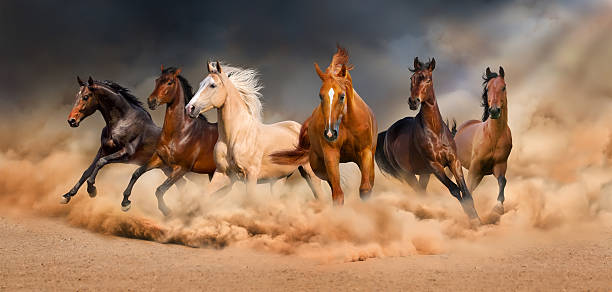
The statistics on ulcers are alarming.
Nelda said that ulcers are a common problem in horses who come off the track. Nelda said that Kentucky-bred Bluegrass Bronco, a warhorse with 38 starts, arrived at Horse and Hound Rescue Foundation. “He was suffering so badly from ulcers that you could touch his side and start to buck- he wasn’t happy.” We immediately placed him on. He was adopted by an equine veterinarian, who keeps him on.
Nelda said that by preventing equine stomach ulcers, “the weight comes back, which quickly you can see a world difference.” Although horses with ulcers can be frustrating, they can be managed. Horses are happier. They are happier, eat better, and gain weight.
How can equine ulcers affect a horse’s competitive performance and health?
One animal health company examined 84 horses suffering from ulcers for a closer look. 77% of the horses had poor performance. This included a loss of jumping style and resistance to dressage training and work, stiffness, and a lack of response to a rider’s leg. Nelda said that ulcers could hurt horses’ performance. No one wants to be ridden with a stomach ache. Ulcers can also affect the horse’s ability to compete.
What causes ulcers among horses?
Both physical and behavioural stress often causes equine gastric ulcer syndrome. Below are some examples of stressors that horses can experience, some common among competition horses in any discipline.
Stress is the body:
Training
Illness
Lameness, pain
Surgery
Behavioural stress:
Transport
Stall confinement
Routine changes
Social regrouping
Weaning
What signs are there of ulcers in horses?
Horses can experience gastric pain in many ways.
Gastric ulcers can cause irritability when grooming, changes in attitude, resistance to being tacked up or under the saddle, and stress-related behaviours like cribbing. These signs can be dismissed as “bad behaviour” but could indicate gastric ulcers. Do you see any of the symptoms of ulcers in horses? Talk to your veterinarian if your horse is showing any of these behaviours.
Poor performance is the No. 1
His side.
Weight loss
Appetite decrease
Poor hair coat
Recurrent colic
Attitude changes
How can horses be diagnosed with ulcers?
It is important for horses suffering from ulcers to get the right diagnosis. Gastroscopic examinations allow your veterinarian to inspect the stomach and diagnose any equine ulcers. An approved omeprazole paste may be prescribed to your horse to treat an ulcer. Additionally, recommendations might be made regarding environmental and management measures that could help prevent future ulcers.
How can you treat and prevent ulcers in horses?
Three methods can prevent equine ulcers: reducing stress, changing feed strategies, and using trusted medication.
You can reduce the stress horses might experience by giving them more turnout, horse toys, and distractions and minimizing overtraining.
Alter feed strategies include:
- Free-choice Hay.
- Small grains meals throughout the day.
- Reduced grain in rations.
- Alfalfa hay.
This buffering effect on your horse’s stomach increases saliva production. Alfalfa has been called “horse Tums” by some experts.
To help horses with ulcers, you must provide trusted medication. Gastric ulcers in horses must be treated. (omeprazole) is the only effective and safe treatment. It can be obtained with a prescription from your veterinarian. You can also prevent ulcers using (omeprazole) during stressful times. Both GastroGard and UlcerGard are effective in preventing gastric ulcers. They each contain 2.28g of omeprazole per tube.
You can help your horse avoid equine ulcers by administering 48 hours before stressful situations like:
Change of stabling, travel
Stall confinement
Training and competition
Weaning and social regrouping
Hospitalization





